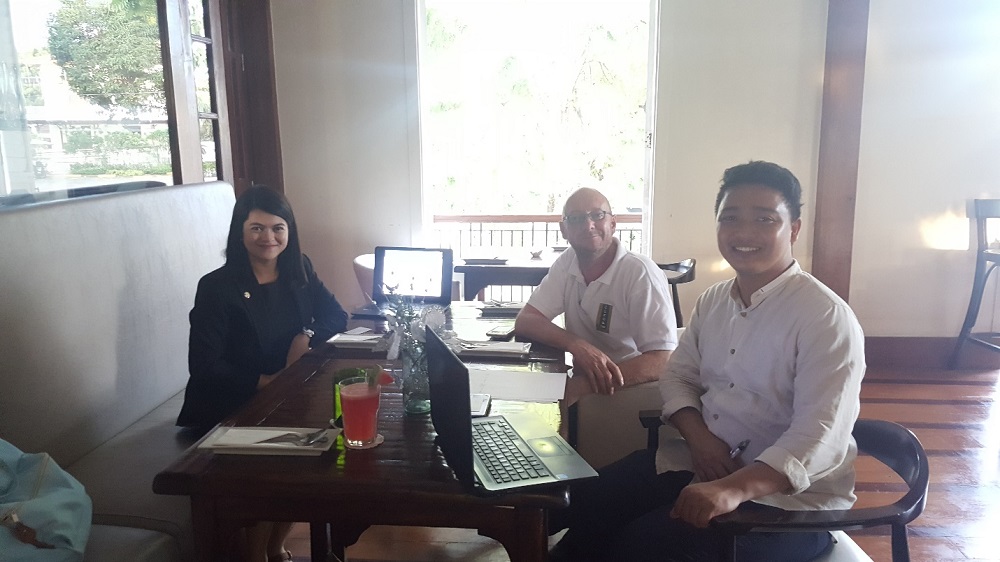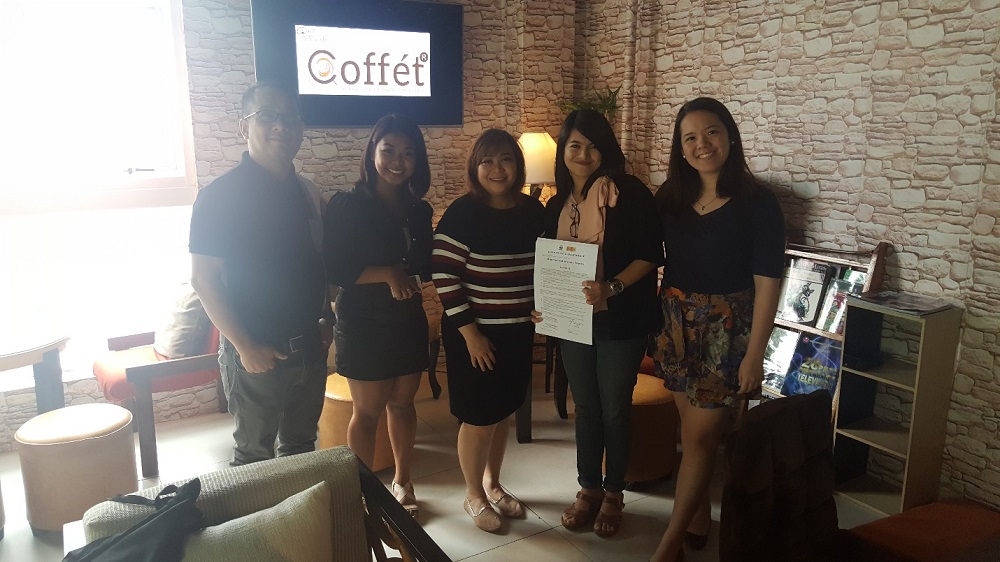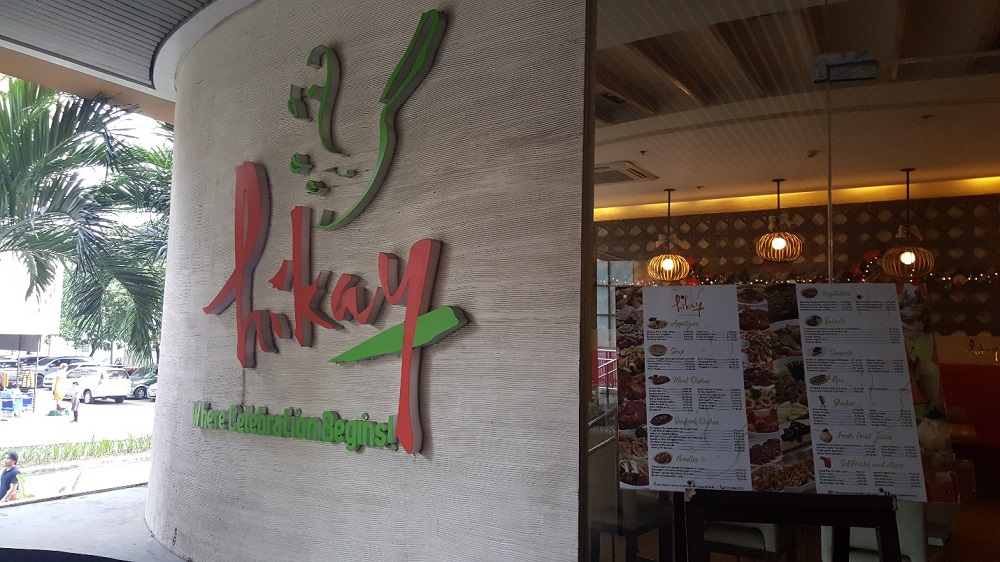Circa 1900, Hikay, and Cafe Marla Join #TheSustainableDiner Movement
January 2018
Three more restaurants from Cebu City and Quezon City commit to a partnership with WWF-Philippines to promote Sustainable Consumption and Production practices in the food service industry.
The holiday season brought cheers and excitement to The Sustainable Diner team of World Wide Fund for Nature (WWF) Philippines, as three more restaurants decided to give the gift of partnership for food security and a more sustainable local dining scene.

Alexa Jeanne Lasch, Food Service Specialist of The Sustainable Diner project, meets with Steve Shrimski, Executive Chef of Circa 1900, and Adrian Sollano, Sales and Public Relations Manager of Circa 1900, for The Sustainable Diner project presentation in Cebu City.
© Alexa Jeanne Lasch / WWF-Philippines
One of the three new partner restaurants is Circa 1900 Casa Uno, which has established a reputation for serving international cuisine that pays respect to Filipino cultural heritage through the use of local ingredients. What began as a cluster of ancestral residences was restored into a lifestyle and leisure destination in October 2014 to accommodate locals and travelers who wanted a quick escape from the hustle and bustle of Cebu City.
A prime dining destination, Circa 1900 Casa Uno not only offers great food but also a great experience of the rich history and culture of Cebu. Conscious about their carbon footprint, they have integrated sustainable practices in their operations – putting up their own herb garden, composting, monitoring their food waste, and providing straws only upon request. Just like its exterior, a colonial house restored with a great amount of effort in order to retain the original structure of its era, Circa 1900 has very passionately incorporated the best that Cebu has to offer in their menu, hoping to preserve the city’s vibrant culinary heritage while delivering a world-class gastronomic experience to its diners.

Members of The Sustainable Diner project team with Ace (leftmost) and Marla David (3rd from left), owners of Cafe Marla, at their coffee shop in Tomas Morato, Quezon City.
© Alexa Jeanne Lasch / WWF-Philippines
With the aim to create a comfortable, homey space and to foster a community of like-minded people, Cafe Marla is the first coffee shop to join The Sustainable Diner movement. Aside from their signature coffee buffet, which addresses a very real need for Filipinos who work fast-paced lifestyles in the metro, Cafe Marla also offers a variety of dishes from their bistro, which includes Pork Agatha – their unique adobo recipe highlighting the use of two local ingredients, Kamias (Ginger Lily) and Kakang Gata (First Extraction of Coconut Milk). Though a relatively new player in the local coffee industry, Cafe Marla is already starting to build a sustainability framework for their coffee shop, starting with using leftovers for their fledgling composting program.

The restaurant exterior of Hikay, located at the Calyx Centre in Central I.T. Park, Cebu City.
© Alexa Jeanne Lasch / WWF-Philippines
A Cebuano word that translates to “Feast”, Hikay promises diners to serve them just that – a feast showcasing Cebu’s proud culinary heritage. With the belief that “Lutong Pinoy”, or Filipino homemade cooking, is the best way to begin celebrations, Hikay has consistently found ways to not just innovate traditionally Cebuano dishes but also to highlight the natural flavors of our simple local ingredients. This is evidenced in their line-up of dishes, an example of which is their Ampalaya Salad with Dilis – made with fresh ampalaya and tomatoes - created to make the humble vegetable appealing to those who are intimidated by its bitter flavor.
WWF-Philippines is proud to have these three restaurants as part of its second set of partners for The Sustainable Diner project, a pioneer project tackling sustainable consumption and production in the country. When we work together across cities, regions, and islands, it is possible for us to create change in the Filipino food service industry.
The Sustainable Diner project, under World Wide Fund for Nature (WWF) Philippines’ Sustainable Consumption and Production, is part of the International Climate Initiative (IKI). The Federal Ministry for the Environment, Nature Conservation, Building and Nuclear Safety (BMUB) supports this initiative on the basis of a decision adopted by the German Bundestag.
